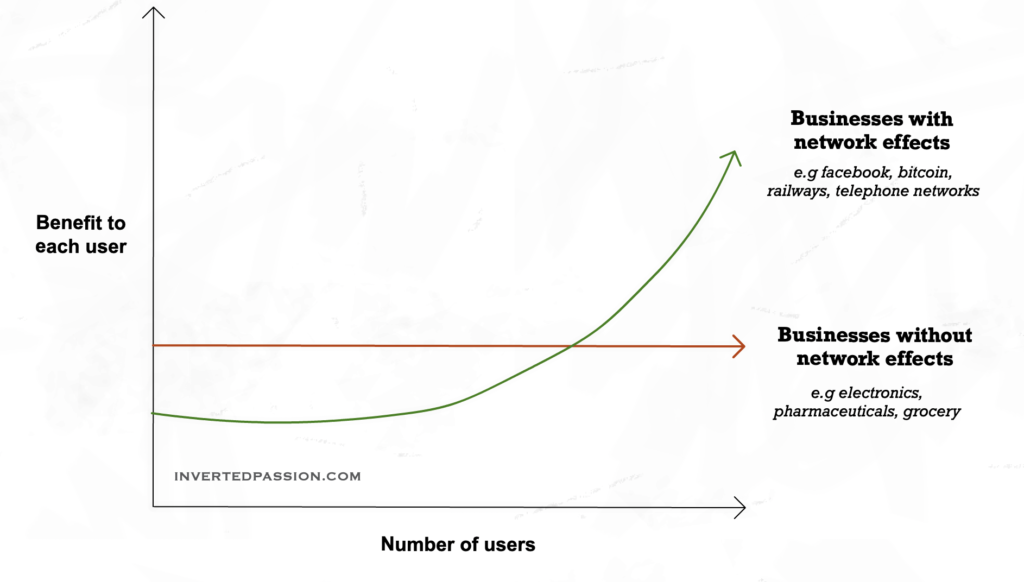A business is said to have network effects if each new customer increases the value derived by all other customers. Take a telephone network. Each new customer with a telephone line helps increase the value of the network for all other customers because now more people can talk to each other than before. Contrast this to other businesses such as the appliances manufacturing business. It’s obvious to see that if I sell one toaster, none of my other customers benefit from that sale.

A business with strong network effects gains a competitive advantage over time because new entrants have to start from scratch and a customer choosing between two alternatives will go with the one that delivers more value, which is often the one with stronger network effects. Because businesses with network effects keep attracting new customers who make such network effects stronger, these businesses soon become almost impossible to beat in their category. Think Facebook, WhatsApp, and Instagram. The value of these apps is not in the technology they provide but in your network of friends using them.
Network effects go beyond this telephone or WhatsApp where people talk to each other. If that were the case, network effects wouldn’t be an important consideration because they’d only apply to specific kinds of businesses. The more general idea of network effects is positive feedback loops that make a business stronger over time. These loops are simple logical ideas that connect various aspects of a business model in a way that makes business growth self-reinforcing.
Amazon started with one such positive feedback loop (also known as a flywheel):
Network effects are often hidden or unintuitive. For example, Google has no obvious positive feedback loop or network effect. However, for Google, the data generated by their users is a kind of network effect. The more data they have on searching patterns, the better their algorithms get which improves results for all users.
Similarly, a business like Netflix has a positive feedback loop because the more customers there are on their app, the more movies they can buy or produce which then benefits all their customers.
Remember: Positive feedback loops gradually build unbreachable moats for a business. So you must strive to find not just one positive feedback loop in your business, but as many as you possibly can.
This essay is part of my book on mental models for startup founders.
Join 200k followers
Follow @paraschopra